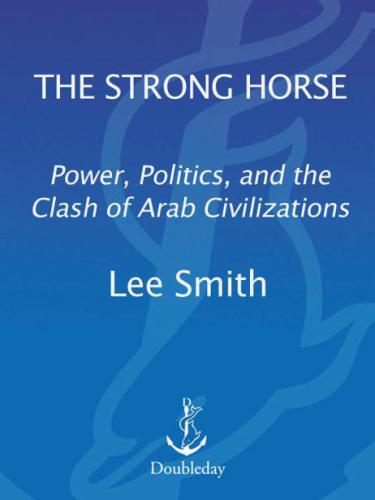
The Strong Horse
Power, Politics, and the Clash of Arab Civilizations
کتاب های مرتبط
- اطلاعات
- نقد و بررسی
- دیدگاه کاربران
نقد و بررسی

Starred review from November 2, 2009
Smith, Middle East correspondent for the Weekly Standard
, argues that it was tensions within the Middle East—not a clash of civilizations, American policies in the region or the creation of Israel—that prompted the attacks on September 11. He writes, “In believing that 300 million Arabs had really lined up as one against America, we had been taken in by a mirage,” and he takes to task Edward Said and others he feels homogenize Arabs into a monolithic group. In the book's strongest sections, Smith looks at continuities from the pre-Islamic Arab world to the present to trace mores and differences that seep into the modern day, adding a fascinating historical angle. While he undermines his argument with a penchant for proclaiming the condition of the region to be immutable (“In the Middle East, political violence is not an anomaly. It is the normal state of affairs”), he should be lauded for his commitment and careful research. The book is compelling, well written and worth a read even—or perhaps especially—by those who would disagree with the author.

December 1, 2009
A view of what the"Arab street" has to say about current affairs—the only problem being, as the author notes, there's not any such thing.
By Weekly Standard Middle East correspondent Smith's account, the Arab world is fragmented, rife with divisions and plagued by poor leadership on all sides. The author also claims that 9/11 was a manifestation less of the war between America and Islam—he means, perhaps, Islamism—than of that among Arab factions, which means"strange as it sounds, the attacks on New York and Washington were not really about us." Perhaps, but the attacks killed many Americans and led to the deaths of many Arabs, notably in Iraq. Smith does well to reiterate the fact that the Arab world is not monolithic and that not everyone is a suicide bomber. Some of his neoconnish prescriptions will seem comforting to those who urge that we take the war to the enemy—whoever the enemy really is—rather than have al-Qaeda march down the streets of Washington, and he casts them in fire-and-brimstone terms well suited to monotheistic climes:"he who punishes enemies and rewards friends, forbids evil and enjoins good, is entitled to rule, and no other." Smith's book quickly betrays its origins as a loosely assembled collection of journalistic pieces, some ephemeral, others more substantial. It is pleasant, but not terribly revealing, to know that the actor Omar Sharif has opinions about the purity of the Arabic language, and a little more useful but still disjointed to work Edward Said's notions of orientalism into the discussion.
Smith could have smoothed his narrative into a more coherent story, but he offers a somewhat provocative look at an endlessly troubled region.
(COPYRIGHT (2009) KIRKUS REVIEWS/NIELSEN BUSINESS MEDIA, INC. ALL RIGHTS RESERVED.)

December 15, 2009
Smith, the Middle East correspondent for the Weekly Standard, offers a new (and unsettling) take on the September 11, 2001, terrorist attacks and the sociopolitical situation that led to them. The attacks, the author asserts, were not so much about a war between the West and Islam as they were about conflicts among the various Arab factions. The book, which gets its title from an Osama bin Laden quote (When people see a strong horse and a weak horse, by nature, they will take the strong horse), not only explores just the political events that led up to 9/11 but also argues the position that the attacks were not really about the U.S. but, rather, were an expression of political strength in a war on the other side of the world. This notion may be a bitter pill for some to swallow, but Smith marshals his evidence carefully and convincingly. The book might not be for the casual readerits rather dry and requires considerable knowledge of world politics to followbut for those with an interest in the subject, it makes for eye-opening, thought-provoking, and perhaps even controversial reading.(Reprinted with permission of Booklist, copyright 2009, American Library Association.)

























دیدگاه کاربران